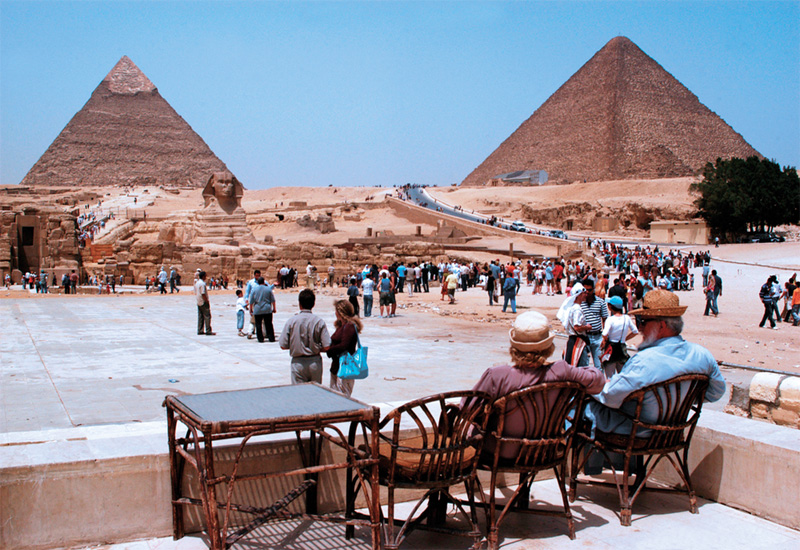Up and coming cairo
The 257-room Hilton Cairo Nile Maadi overlooks the Nile in the upscale residential and diplomatic district of Maadi. It is the first hotel in Egypt to be owned by both the Egyptian and Saudi governments and is “set to become one of the flagships of the joint investments between both countries”, according to Saudi Egyptian Real Estate Development chief executive officer engineer Darwish Ahmed Hassnin.
In addition to the latest signing, Hilton Worldwide also has the 635-key Hilton Heliopolis and the 390-room Hilton Giza Pyramids coming up in Cairo.
Hilton Worldwide, Middle East & Africa president Rudi Jagersbacher told Hotelier Middle East he believes “the market is coming back”.
“The rates are still a bit low but we need that so Cairo can fill [the hotels]. We have a big business in Egypt with key hotels there.”

| Advertisement |
In addition to Cairo, the group already operates hotels in Alexandria, Hurghada, Sharm El Sheikh, Taba, Nuweiba, Marsa Alam and Luxor. Its Egypt pipeline also includes the coastal 660-room Hilton Makadi Resort, the 158-room Hilton Alexandria Corniche and the 195-room Hilton King’s Ranch Resort in Alexandria.
“Our Egyptian expansion strategy and determined pipeline growth reflects our unwavering faith in the viability of Egypt, its people, business and its community,” comments Hilton’s Jagersbacher.
Sofitel is also confident in Cairo’s ability to rebuild itself as a major tourism destination. In the midst of the unrest, CEO Robert Gaymer-Jones told Hotelier that the city was among those pinpointed for the expansion of its fashionable ‘So by Sofitel’ brand within the next five to seven years.
Other operators and developers that have publicly backed Cairo’s comeback in the past 12 months include Mövenpick Hotels & Resorts, which added four new Nile cruisers last October as “testament to its belief in Egypt’s tourism sector”. The group has also added a 134-key extension to its existing Mövenpick Giza, Cairo Pyramids property.
Other notable projects coming up within the next five years include Royal Maxim Hotel Kempinski, Renaissance Cairo Mirage City and Shaza Cairo Nile, among others.
Then there is the return of the hotels that used the lull in tourists as an opportunity to renovate their offerings, including the conversion of The Nile Ritz-Carlton, Cairo and the opening of Sheraton Cairo — both scheduled to relaunch this year.
Meanwhile, the Grand Egyptian Museum in Cairo is expected to provide 15,000 new jobs in the tourism sector when it opens in 2015.
The project, which has just entered its final phase of construction, already employs 5000 people. In total, the new museum will cost EGP 5 billion ($829 million), with a large part of funding provided by the Japanese government in the form of a soft loan to be repaid within 10 years of inauguration, according to Egypt’s Minister of State for Antiquities Dr. Mohamed Ibrahim.
Furthermore, one of Saudi Arabia’s largest hotel and amusement park developers, Al Hokair Group, recently announced that it was looking to raise up to $570 million to fund commercial projects in Cairo, as well as in Alexandria.
Some of the most significant projects in Cairo, however, have been undertaken by Emaar Misr, the Egyptian arm of UAE-based Emaar. These include the 48 million m² Uptown Cairo development comprising multiple hotels, residences, an 18-hole golf course, as well as business and retail space. Hotels also form part of the 3 million m² Cairo Festival City mixed-use project close to the airport, and the most recently announced $80 million Cairo Gate retail project.
“There are a lot of schemes ongoing… all these companies are still working in the background,” reveals Colliers International’s Sona.
“They’re not making public announcements, but they’re doing their homework and all the professional teams are still travelling there.”
What lies ahead?
Looking too far into Cairo’s future may be risky, but for those risk-takers that do, Colliers International suggests the biggest opportunities could lie in the segments neglected by many of the luxury operators active in the city.
According to Colliers International, the supply of budget brands and serviced apartments in Cairo is scarce; these are typically small, locally-branded, low-quality properties with limited facilities.
“The opportunity is clearly in internationally-branded economy hotels and serviced apartments. This new wave of budget travellers attracted by low rates is creating a new profile of tourists in Cairo; those that visit for leisure are looking for alternatives to the luxury five-star properties,” he concludes.









 Search our database of more than 2,700 industry companies
Search our database of more than 2,700 industry companies









